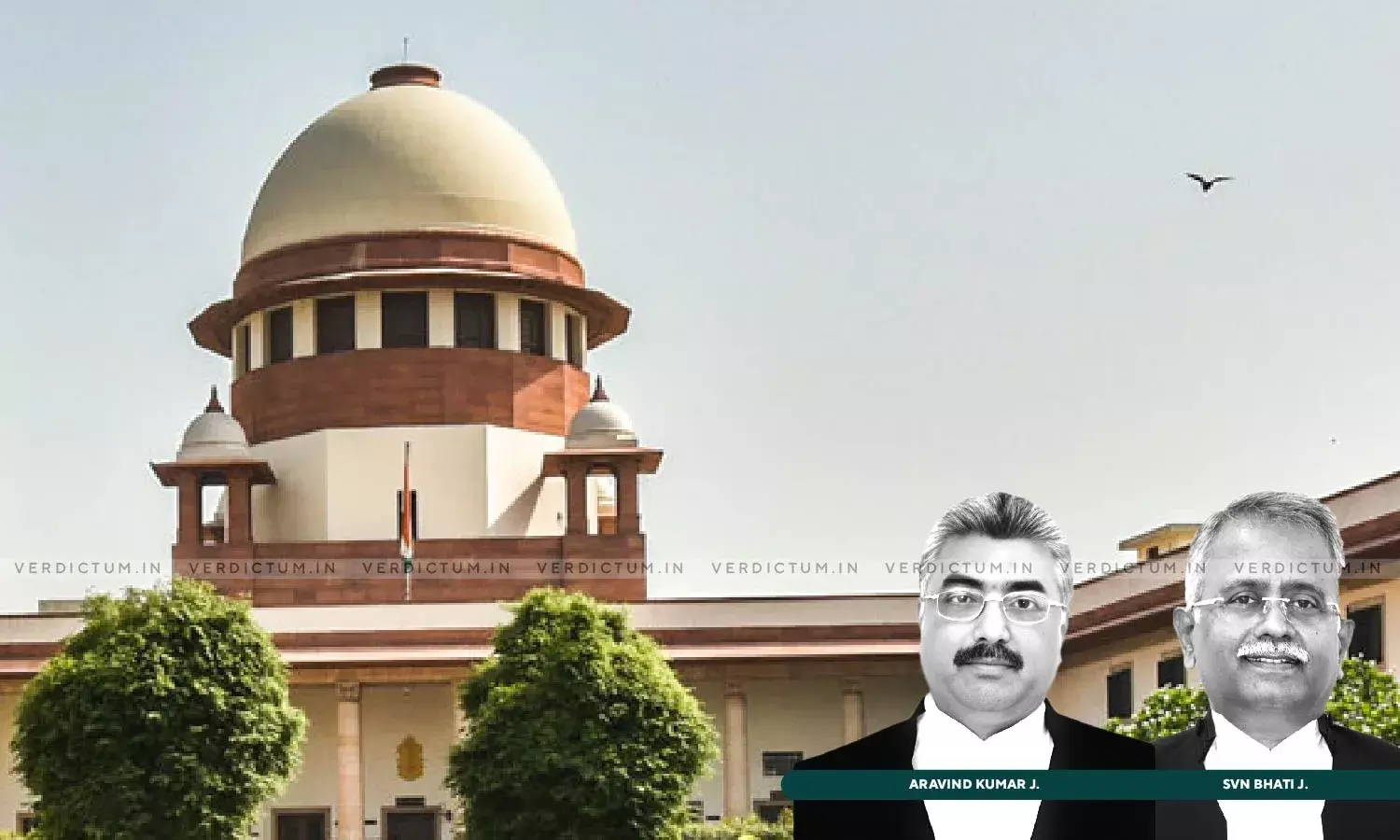SC Expounds Two Questions Which Should Be Asked To Accused Once Presumption U/s. 139 Of NI Act Is Applicable In Cheque Dishonour Cases

A Supreme Court Bench of Justice Aravind Kumar and Justice SVN Bhati reversed the acquittal of an accused in a cheque dishonor case, while observing that there was a fundamental flaw in the approach taken by the Trial Court and the High Court.
Subsequently, the Court expounded that once the Courts have concluded that the signature in the cheque has been admitted and its execution has been proved, then the Courts should inquire into either of the two questions (depending on the method in which accused has chosen to rebut the presumption): Has the accused led any defense evidence to prove and conclusively establish that there existed no debt/liability at the time of issuance of cheque? In the absence of rebuttal evidence being led the inquiry would entail: Has the accused proved the nonexistence of debt/liability by a preponderance of probabilities by referring to the ‘particular circumstances of the case’?
Counsel Rajesh Jain was the appellant appearing in person, while Counsel Yudhvir Dalal appeared for the respondent.
In this case, Mr. Rajesh Jain, the complainant, lent a total of Rs. 6 lakhs and additional amounts to Mr. Ajay Singh, the respondent-accused, who had requested a loan along with his wife. Mr. Jain believed that Mr. Singh would repay the borrowed money with interest as agreed, but Mr. Singh failed to do so within the agreed timeline. Mr. Jain's attempts to recover the money were met with avoidance tactics, including Mr. Singh changing his phone number to evade his financial obligations.
In 2017, Mr. Jain located Mr. Singh, who then promised to repay the outstanding dues within three months. Mr. Singh issued a post-dated check for Rs. 6,95,204 as part of the repayment, with a commitment to provide another check in December 2017 for the remaining balance. However, the first check bounced due to insufficient funds. Mr. Jain sent a demand notice, requiring Mr. Singh to make the payment within 15 days, but when Mr. Singh failed to comply, a complaint under Section 138 of the Negotiable Instruments Act was filed in the Court of Judicial Magistrate First Class.
The Apex Court observed that, "Once the presumption under Section 139 was given effect to, the Courts ought to have proceeded on the premise that the cheque was, indeed, issued in discharge of a debt/liability. The entire focus would then necessarily have to shift on the case set up by the accused, since the activation of the presumption has the effect of shifting the evidential burden on the accused. The nature of inquiry would then be to see whether the accused has discharged his onus of rebutting the presumption. If he fails to do so, the Court can straightaway proceed to convict him, subject to satisfaction of the other ingredients of Section 138."
In light of the same, the Apex Court clarified that if the Court finds that the evidential burden placed on the accused has been discharged, the complainant would be expected to prove the said fact independently, without taking aid of the presumption and that the Court would then take an overall view based on the evidence on record and decide accordingly.
The Court relied on a catena of Judgments to hold that as soon as the complainant proves the execution of the cheque, the burden of proof shifts to the accused due to Section 139 of the Act.
Subsequently, the Court held that there was a fundamental flaw in the way both the Courts below appreciated the evidence. In that vein, it was said that, "The fundamental error in the approach lies in the fact that the High Court has questioned the want of evidence on part of the complainant in order to support his allegation of having extended loan to the accused, when it ought to have instead concerned itself with the case set up by the accused and whether he had discharged his evidential burden by proving that there existed no debt/liability at the time of issuance of cheque."
Consequently, the Apex Court set aside the Judgment of the High Court and convicted the respondent with a fine of twice the amount of the cheque.
Cause Title: Rajesh Jain v. Ajay Singh

